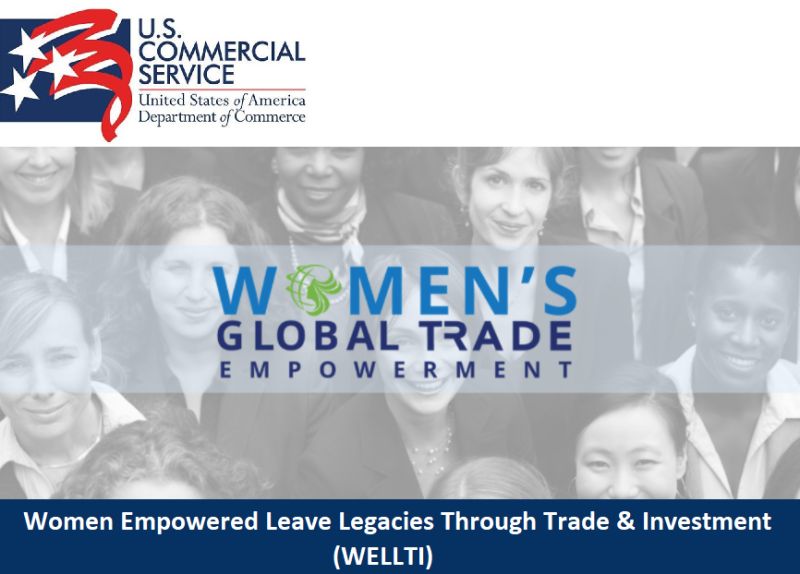
- This event has passed.
WELLTI Women Business Leaders in the Middle East and Africa
July 13, 2021 @ 8:00 am - 5:00 pm

On the 13th of July, Camille Richardson Deputy Assistant Secretary of Commerce for the Middle East & Africa with six women leaders of American Chamber of Commerce in the Middle East and African region shared great insights on Women Businesses owned Businesses in the region. US Deputy Assistant Secretary (DAS) of Commerce for Middle East and Africa Camille Richardson has launched the Women Empowered Leave Legacies through Trade and Investment (WELTI) Initiative.
The session was attended by over 400 attendees from around the world, and featured women leaders from the US Chamber of Commerce affiliates in the Middle East and Africa (MENA) region including Jordan, Egypt, Morocco, Abu Dhabi, Nigeria, and South Africa. The session’s discussion revolved around opportunities, challenges, and solutions for women doing business in the Middle East and Africa. The conversation gave attendees insights and advice from experienced women chamber leaders in the region.
The US Deputy Assistant Secretary (DAS) of Commerce for Middle East and Africa Camille Richardson launched the event and briefed attendees about the WELTI initiative, which aims to bring together leading businesswomen from the United States and the MENA region to discuss strategies. These techniques can provide them with the data, knowledge, contacts, and financing to increase international trade. DAS Richardson shared insightful statistics stating that “more than 90 percent of enterprises around the world are considered as SMEs, which account for nearly 80 percent of jobs globally.” DAS Richardson concluded with the fact that “Sustainable economic growth and achievement of the [United Nations] Development Goals are possible only through the active participation of women.”
AmCham Nigeria representative Margaret Olele stated that, “A lot of women, especially during COVID, started to see opportunities” in entrepreneurship, specifically citing healthcare and ecommerce. These recent entrants constitute just a fraction of Nigeria’s female entrepreneurs, many of which are engaged in entrepreneurship of necessity to support themselves or families.
Despite the high participation rate, Margaret acknowledged the “challenges that women face remains the same around access to information, funds, and financing.” These are several of the shortcomings that the WELLTI initiative wishes to address. The American Business Council is a steadfast supporter of the US private sector doing business in Nigeria. Through events, advocacy, and their newsletter, they connect and promote U.S. business interests in the market.

